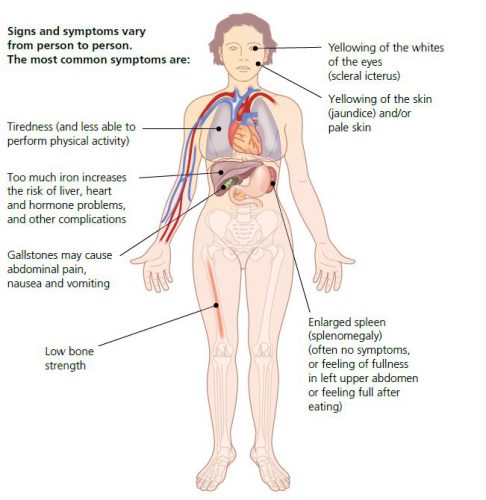Filling educational gaps is what the Fast Facts series does best, particularly in the rare disease space. So how do we do it?
You may be unfamiliar with pyruvate kinase deficiency (PKD). It is a rare inherited enzyme disorder that affects the glycolytic pathway used by red blood cells to generate energy, manifesting as hemolytic anemia. The symptoms vary greatly between individuals, making diagnosis difficult, and management primarily comprises supportive treatments.

Given the rarity of the condition, there was little available ‘published’ resources for clinicians and patients to access outside of traditional research papers. To help close the educational gap and raise awareness of this disease state, with the support of a medical educational grant Karger commissioned a suite of accessible book publications for both the patient and professional audience.
Engaging the Clinical Community
We reached out and brought together subject matter experts from the US and Europe to produce a balanced, multi-perspective, international overview of the disease state. For patient input and feedback, we used social media. Through this method we discovered that there was a globally active patient forum and as the result of our outreach they kindly provided us with some guidance about what their needs were with regards to content and education. The forum was very receptive to being involved in the development of these resources, especially given the lack of available information on the topic.
Our engagement with the group proved very useful particularly for the patient booklet as we were able to seek input and feedback from patients during the writing phase, which brought up some interesting insights, especially around the ‘level’ of the content i.e. the level of language used and what terminology to include. There was a consensus among some parties that the initial draft that we developed was too high-level for a patient audience. However, when we put the draft to the patient forum, they insisted that we don’t remove any of the technical information or water it down in any way. PKD being a life-long condition, they wanted a resource that gave them all the facts – a true reference guide. It was seen as a resource that they could use with their clinicians, particularly those with little or no knowledge of PKD, for example when visiting the GP to help explain their condition and provide them with a quick succinct overview.
Medical Language Deciphered in Plain English
The instruction from the forum to us was clear – translate the science.
Inevitably this is what we did, creating a highly illustrated workbook, with pull-outs and space to write notes, designed to help patients equip themselves with the best information about their condition to improve the conversations they have about it with their doctors and nurses. The success of this approach was underlined by British Medical Association Patient Information Awards committee – where the booklet received a ‘highly commended’ award.
Soon we found there was a demand from both clinicians and patients to have these materials available in local languages – which we duly delivered. We translated and published the booklets in Spanish, French, Italian and German and in doing so sought feedback from local experts and patients to ensure that material was relevant for the local audience.
Discoverability
A real plus point of engaging a medical publisher in the development of educational resources is that the resources are then ‘published’, in the sense they have an ISBN, making them truly enduring and discoverable from a range of platforms including Amazon and Google books.
With our free-of-cost model, access to Fast Facts materials has no limitation; both patients and clinicians can download resources for free. This in turn helps us to achieve maximum uptake and visibility, which again is particularly important for rare diseases. Interestingly, since we made Fast Facts free of charge, PKD has been one of the top 10 most downloaded resources from the Karger platform! Great for disease awareness, especially for rare conditions such as this one.
Want to know more about PKD or other diseases? Check out Karger’s collection of free Fast Facts materials.






Comments
Share your opinion with us and leave a comment below!